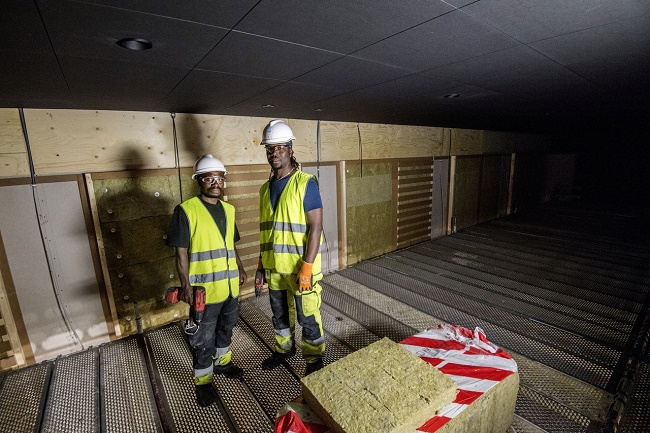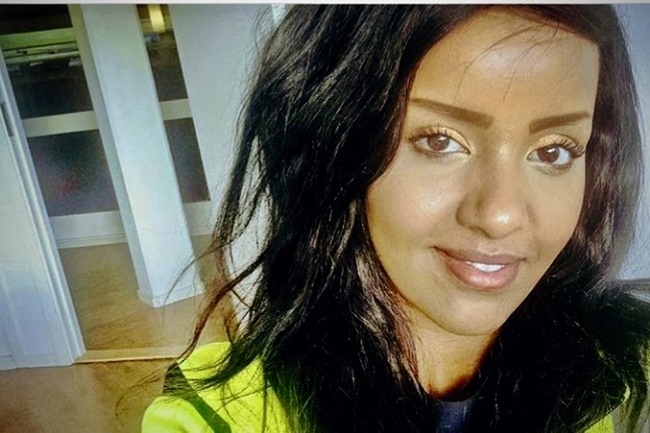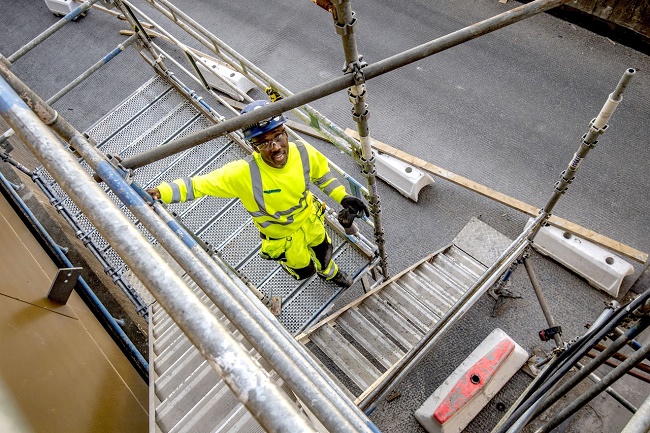Resurskraft Skåne: A company breaking the norm

Georgian Mensah and Jamin Jammeh
Photo: Sven-Erik Svensson
They met at the organisation Afrosvenskarnas (Afro-Swedes) Forum for Justice but became business partners. Now they are doing a diversity of work through a company in the construction industry-Resurskraft Skåne.
“Our dream is a society where everyone can fit. Instead of waiting for someone else to create it, we act ourselves. We are an alternative construction company that smashes the norm. We want to show that it is possible to employ even those who do not fully master the language,” says Rukiya Ismail Daoud.
She worked with business development and combined in 2016 with Ebrahima Drammeh, who had more than ten years of experience in the construction industry and a dream about forming his own company. Alasana Njie also jumped on the train. He has been working with fiber digging for several years. Now they have had Resurskraft Skåne for about a year.
The company carries out construction and fiber digging as subcontractor to larger companies. It has offices in the oil harbour in Malmö, employs 19 people and aims to become among the largest in the Skåne region.
“I worked in the construction industry and saw that there were many who had the skills, the will and deserved a place that did not get the opportunity,” says Drammeh.
Rukiya Ismail Daoud points out that Afro-Swedish men belong to the group that has the most difficult to get into the Swedish society.
Very recently, the UN Racial Discrimination Committee criticised Sweden for failing to comply with the ratified Convention on the Elimination of Racial Discrimination.
Afro-Swedes and people of African descent are exposed to hate crime, hate speech, racist portrayals in the media and segregation in both the housing market and the labour market, the committee reported.
In Resurskraft Skåne, approximately 90 per cent of employees break the Swedish norm, mainly through skin colour. Most are Afro-Swedes, but there are also, for example, Romas and Syrians in the company. Two out of three members of the board are women.

Rukiya Ismail Daoud says Resurskraft Skåne is an alternative company that smashes the norm
Photo: private
“When we hire, we don’t look for Afro-Swedes, it’s not the whole thing about the company. But we look at competence and ambition, it does not do so much if you do not know the language. We take a social responsibility, it is more like a big family than as a company,” said Rukiya Ismail Daoud.
Georgian Mensah and Jamin Jammeh work for Resurskraft Skåne. They have both training for the construction sector but have previously found it difficult to find work.
“It means a lot to me that I got a job in Resurskraft Skåne. I am a trained tinsmith but I did not get a job. I had to switch to the restaurant industry to get a job,” said Jamin Jammeh.
“I am a trained painter in both Sweden and Denmark, despite the fact that it has been difficult to find a permanent job. After six months in the company I thrive very well, says Georgian Mensah.
Rukiya Ismail Daoud brings out a language course that also includes knowledge of society and authorities. The goal is to be able to keep it as continuing training on working hours for employees. But the company is not quite there yet, it is working to establish itself, they started without capital and are completely dependent on ever-new assignments. A framework agreement with Skanska has meant a lot along the way.

Drammeh is one of the company’s founders
Photo: Sven-Erik Svensson
Resurskraft Skåne has assignments all over Skåne.
“We are also working in smaller communities that have not made themselves known for their openness. I have been worried about being badly treated, we have such experiences. But we are also challenged, most times we are well received. It is invigorating to be in a context where it is okay to aerate these experiences and then move on, focus on the positive and continue to work hard,” she adds.
Many of the company’s customers have diversity goals and show that they find it exciting to work with a group that really contributes to diversity.
Ebrahima Drammeh says that it is often possible to see a surprise with entrepreneurs when they start a collaboration and Rukiya represents the company at a meeting.
“On the phone, they just hear someone who speaks perfectly Swedish and the name maybe they can’t place. Being a woman, manager and Afros-Swede is not common in the construction industry. But we hope we can help make it more common, “he says.
Article first published in Swedish at 8till5.se

